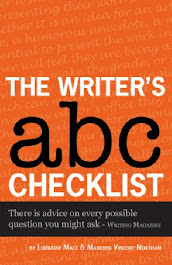Author and good friend, David Robinson, has kindly taken time out to provide a guest post. Here he shares his thoughts on the importance of an editor to those choosing to take the self-publishing route.
The fact that I'm David's editor has in no way influenced this post (!)
The fact that I'm David's editor has in no way influenced this post (!)
It’s no big secret that Maureen edits my work.
I’m an indie. I don’t submit my work to agents or publishers. Like thousands of others, tired of the same old dinosaur run around, I gave it up, and jumped aboard the Kindle/Smashwords self-publishing bandwagon.
Back in the days when I was traditionally published, I learned that editing is part and parcel of preparing a work for publication. As an indie, it ceased to be necessary and became vital.
The first and most obvious reason is spelling, punctuation, grammar and consistency. They’re all tied up in one big bundle, but taken together, they ensure that the reader is not distracted by three different spellings of where (we’re and wear). It ensures that “Kick, Cheryl,” is interpreted as an instruction to Cheryl to kick, and not an order for someone else to kick the woman named Cheryl.
These are the kinds of error it’s so easy to miss when you’re proofing your own work. Why? Because you wrote it, and despite your best intentions, you are more than likely to “speed read”. In other words, at some point, you will read only every third or fifth word and the sentence will still make perfect sense to you.

Editors like Maureen point out more than simple errors, however. I had a rather long piece of dialogue towards the end of my novel “Voices” and it was Maureen who pointed it out. I broke up that paragraph by inserting a comment from another character and some animation.
There is a final part the editor has to play in the development of your masterpiece: imagery.
Ask yourself, what constitutes the process of writing fiction? You entertain a mental image and you transfer that image to paper (or screen) in the form of written words. It makes perfect sense to you. But does it to your readers? How do I know that when you read my words, you will understand what I’m trying to get across?
 I don’t.
I don’t.But when Maureen reads through it, if she does not understand it, she will say so and I know I have to reword it.
It’s all part of the process of polishing this thing before unleashing it on an unsuspecting public, and we should not pretend that we’re above it just because we’re independents.
Long live the editor.
At least two further books in the popular whodunit series starring the members of the Sanford 3rd Age Club will make an appearance this year. You can read some shorter works from the STAC Casebook for free.
The latest story in David’s other series, Space Truckers – fun sci-fi stories – is The Pirates of Penzarc, which is the much awaited follow-up to Coronallium Conundrum.
(All of David's books can be found in the sidebar to the right)
.
































4 comments:
Great post, David - and very good advice!
Fab post and wonderful advice. You hit the nail on the head when you say most of us cannot see all of our own mistakes. Although I was surprised to discover that we only read (roughly) every fifth word! From now on this la'arl Cumbrian be checking her work more closely. Thank you.
PS. I'm following because I see other posts here that I need to read.
Thanks, Jessie :)
Post a Comment